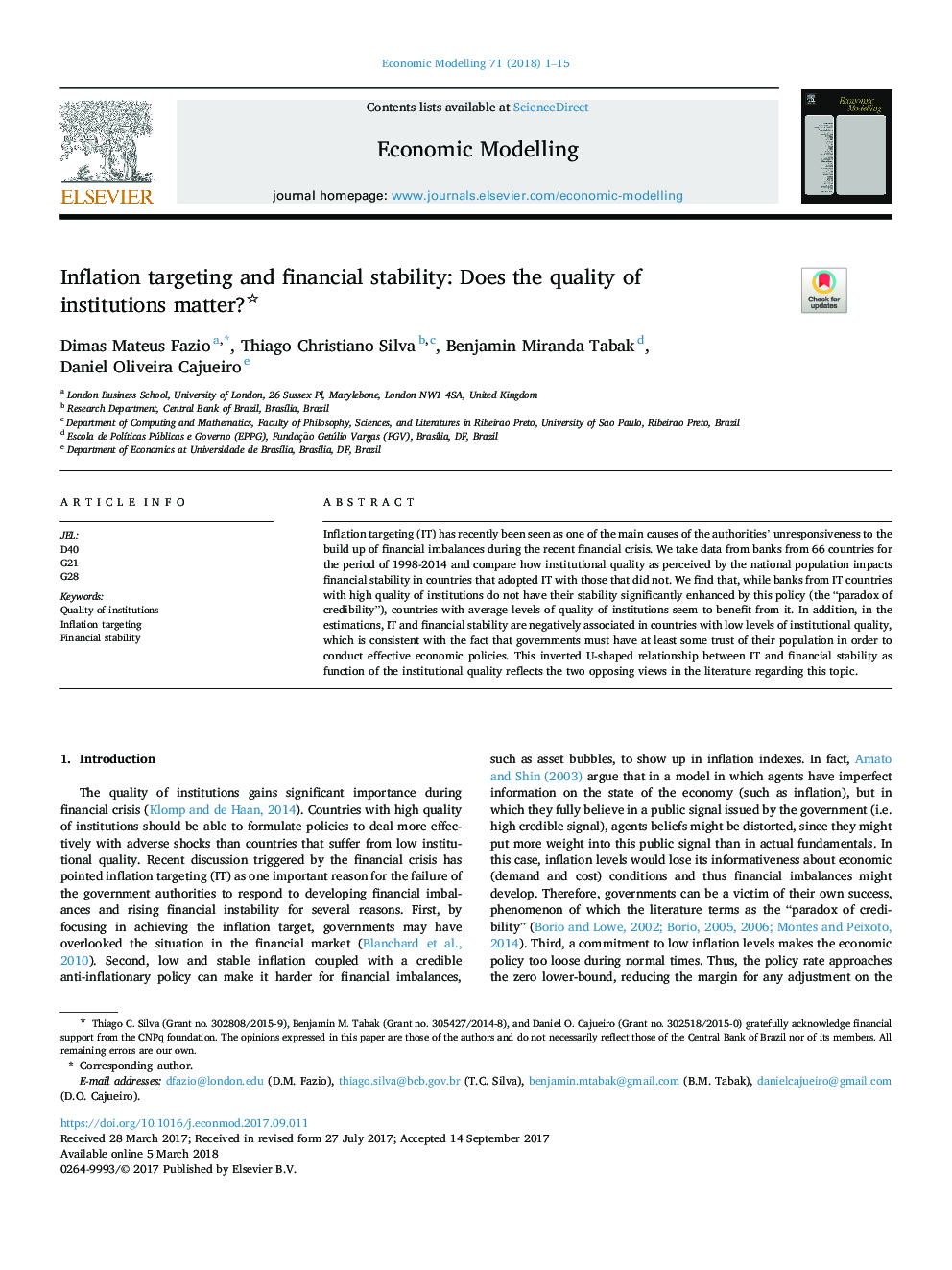| Article ID | Journal | Published Year | Pages | File Type |
|---|---|---|---|---|
| 7347083 | Economic Modelling | 2018 | 15 Pages |
Abstract
Inflation targeting (IT) has recently been seen as one of the main causes of the authorities' unresponsiveness to the build up of financial imbalances during the recent financial crisis. We take data from banks from 66 countries for the period of 1998-2014 and compare how institutional quality as perceived by the national population impacts financial stability in countries that adopted IT with those that did not. We find that, while banks from IT countries with high quality of institutions do not have their stability significantly enhanced by this policy (the “paradox of credibility”), countries with average levels of quality of institutions seem to benefit from it. In addition, in the estimations, IT and financial stability are negatively associated in countries with low levels of institutional quality, which is consistent with the fact that governments must have at least some trust of their population in order to conduct effective economic policies. This inverted U-shaped relationship between IT and financial stability as function of the institutional quality reflects the two opposing views in the literature regarding this topic.
Related Topics
Social Sciences and Humanities
Economics, Econometrics and Finance
Economics and Econometrics
Authors
Dimas Mateus Fazio, Thiago Christiano Silva, Benjamin Miranda Tabak, Daniel Oliveira Cajueiro,
